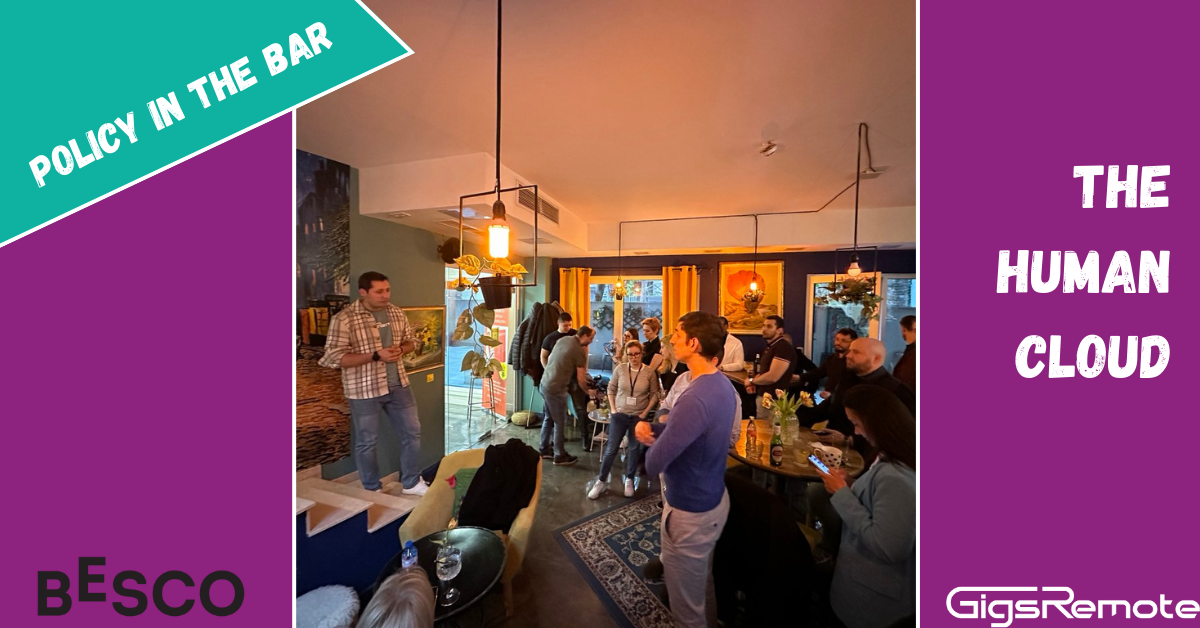The Rising Human Cloud
The following is an adaptation of a keynote speech by Plamen Tsekov, CEO and co-founder of GigsRemote presented at the future-focused event “Before Tomorrow”. You can watch the presentation below, but keep in mind that it is in Bulgarian.
Hello,
I have a question for you: Do you use cloud technologies to store personal or business data?
If you have an email, you are. If you use a smartphone, most probably you are.
94% of enterprises worldwide report that they do. So chances are at least from a business data perspective, that you are!
...
Do you remember how data was stored and used 10 years ago?
The cloud, as we know it on a massive scale now, emerged as a concept after the 2008 financial crisis. At that time, it sounded extravagant, crazy, and many of us were skeptical about it.
As a result of the financial crisis, new business models emerged and evolved - low-cost airlines, the sharing economy - Uber and AirBnB are amongst the most famous examples.
The Gig Economy also emerged as a labor market consisting mainly of temporary and part-time positions, filled by freelancers, rather than permanent contract employees.
The Gig Economy gained great momentum in the last decade, and most likely all of you use the services of contractors in one form or another.
Currently, the next business phenomenon is being born - the Human Cloud.
What is the Human Cloud?
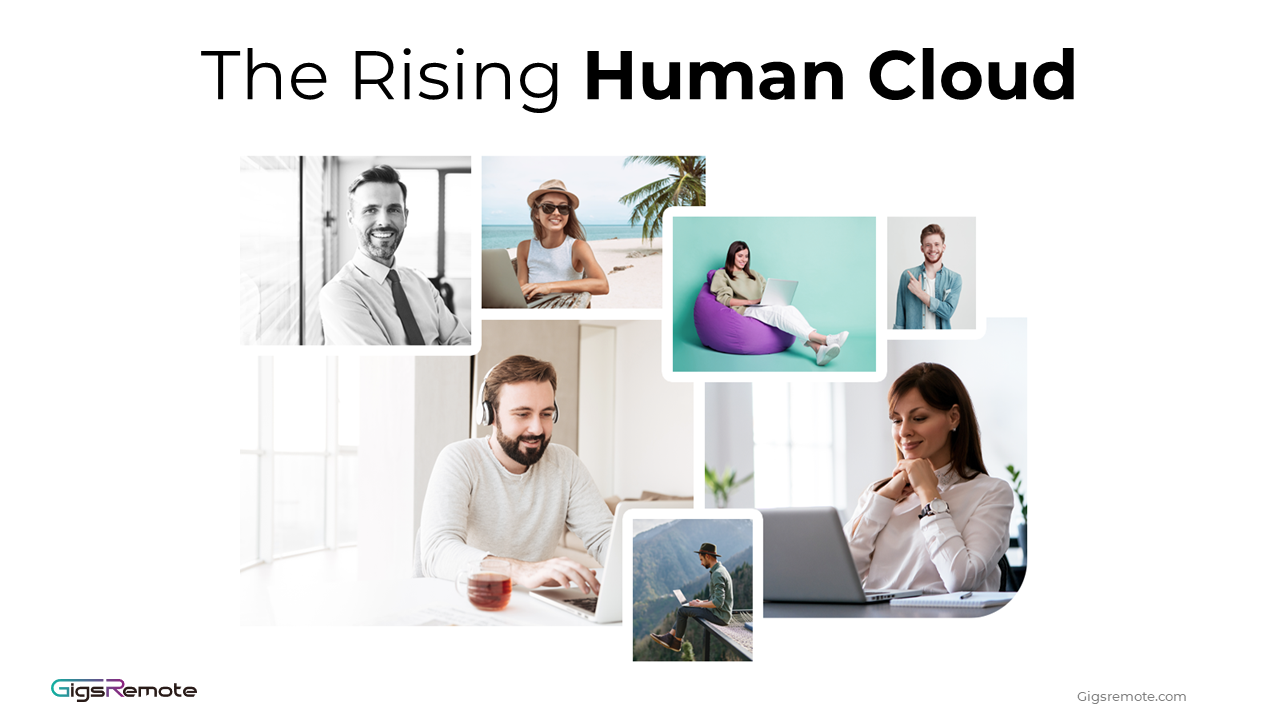
It is a specific part of the Gig Economy, where people work entirely or primarily remotely, including in another city, country, or time zone than the company headquarters or direct report office.
This is a new way of working and professional engagement, in which the concept of long-term employment contracts, physical locations, and corporate offices do not exist. Communication and service delivery are carried out entirely over the Internet. In general - the company has no physical contact with the worker.
The catalyst for remote work was the COVID lockdowns, and the need to work from home for months on end. Before COVID, very few companies believed that such a work model was possible and effective. Now you see what the reality is - empty office buildings, people moving away from the big city. The office is now a place for extraordinary meetings and is not the place where work is primarily done.
Work is no longer a place you go, but something you do, one might argue.
What are the characteristics and advantages of the Human Cloud?
They are quite similar to those of the familiar IT Cloud.
Flexibility and lower costs - it's easy to start or end an engagement without the burden of labor law regulations. Just as you’d scale your IT infrastructure in the cloud.
Speed - you can hire a specialist much faster and let them go just as quickly. You can hire part-time workers, which provides an even greater talent market.
No overhead costs - Human Cloud workers do not need your office space, they pay their own utility bills, and internet, and work with their own devices. Everything is included in the price of their labor.
Global talent pool - This is perhaps the greatest advantage. You can utilize skills and talent from every corner of the world. You can focus on specific locations and time zones if your business has specific requirements.
Skills on demand - you hire qualified people when you need them and for the period you need them. It's similar to seasonal workers, but in this case, highly skilled specialists working remotely.
Last but not least - easy collaboration. We all saw and experienced during the pandemic that virtual video meetings work and have become part of our daily lives since.
In this cloud, we don't have computers, data devices, and IT services, but a volume and variety of people, skills, and talent that deliver services and results to you.
I want to share some gig-related numbers with you:
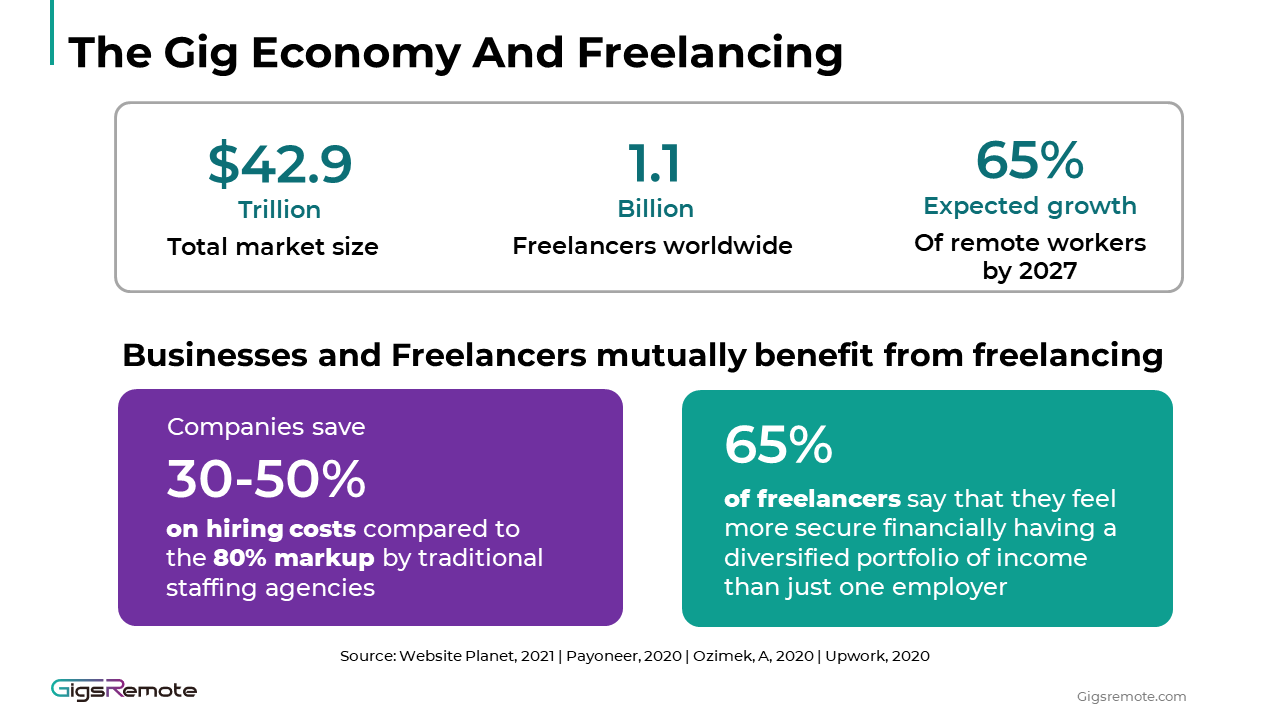
The gig economy, as of 2020, has a global market volume of $43 trillion. This is a significant presence, even before the peak of the pandemic and the unlocking of remote work.
There are over 1.1 billion freelancers worldwide, covering all types of work that are project-based or self-employed - including Uber drivers, pilots in low-cost airlines, consultants, IT specialists, and others. The Gig Economy is a significant factor in North America, Asia, and parts of Western Europe.
What are the conclusions so far:
- Companies, by working with freelancers, save 30-50% on hiring costs, as they avoid agency fees and margins for recruitment and temporary employment.
- 65% of freelancers feel more secure knowing they have more than one active project and source of income from work.
The Gig Economy has long been here and around us.
What we will witness tomorrow is the rapid rise of the Human Cloud.
By 2027, the number of remote workers is expected to grow by 65%
Global and multinational companies are already successfully using this model.
What should businesses (especially SMEs) do to avoid being caught off guard and crushed?
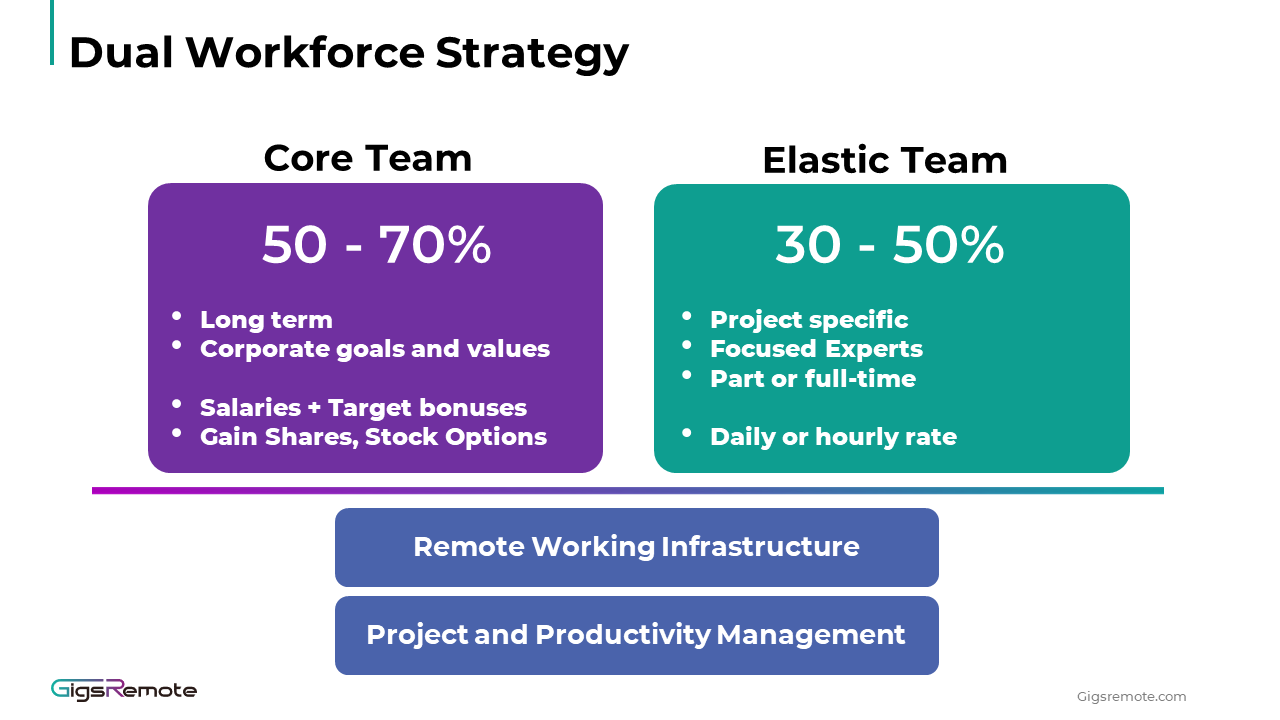
They must prepare and reform!
Most importantly – adopt a dual workforce strategy.
Think of a permanent team of employees as a long-term core, comprising 50% to 70%, and a flexible team of freelancers that can vary over time, depending on the season, projects, and tasks.
The other two fundamental aspects to adopt are:
- An IT infrastructure and culture for remote work, to support each other.
- Also, the capacity and skills to manage projects and labor productivity. The core employees should have advanced project management skills.
Companies must prepare for this organizational transformation, if they do not, they can become a victim. The Human Cloud will simply absorb your best specialists without realizing it, and one day it will be like the tale of the boiled frog.
How to solve the problem of searching for and finding suitable freelancers:
There are currently many platforms, global or specialized for specific sectors - such as Upwork, Fiverr, TopTal, and others, all part of the Human Cloud. And there will be even more.
Where do we stand?
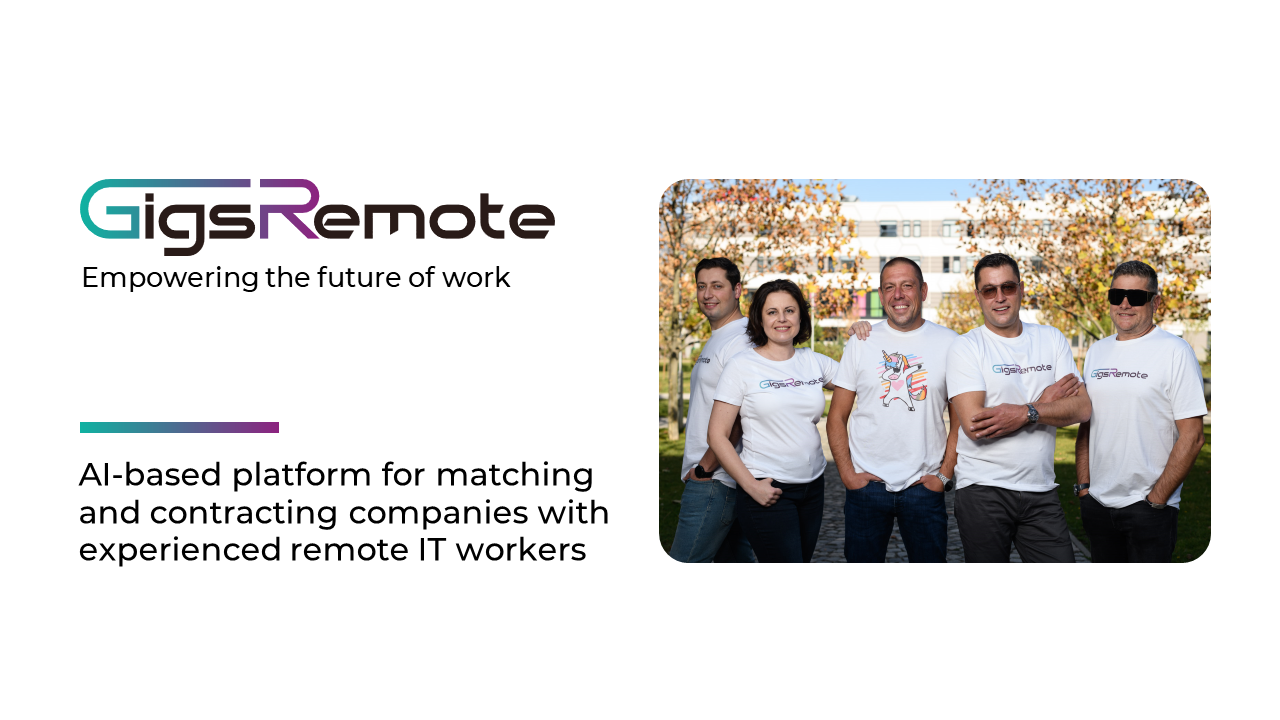
Last year, together with like-minded people and followers, we founded GigsRemote – an Eastern European, locally oriented freelance platform that, with the help of artificial intelligence and cloud technologies, helps all kinds of companies connect and match with experienced IT specialists from Bulgaria and the region.
The GigsRemote team believes that artificial intelligence technologies can provide a huge advantage in terms of speed and quality of navigation in the Human Cloud, but the leading element remains human contact, both in terms of specialists and companies.
In conclusion:
I believe that the Human Cloud is the Future of the Work model!
And it is coming quickly, and it will provoke a new industrial revolution!
